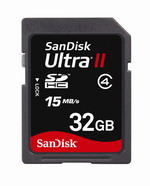
With Clear's airport security dissolving, what happens to all that personal data?
After days of uncertainty following Verified Identity Pass's abrupt shutdown last week, representatives of the defunct company are coming forward with at least some data on what will happen to the large collection of personally identifiable information (PII) it acquired from its customers.
In a letter to former members that's also posted to its Web site, Clear Customer Service attempted to address at least a few of the questions that have come up. The company (the letter was unsigned) reiterated that the data "is secured in accordance with the Transportation Security Administration's Security, Privacy, and Compliance Standards." The company revealed that Lockheed, which has been the firm's lead systems integrator, is working with parent company Verified Identity Pass, Inc. and the US Transportation Safety Administration "to ensure an orderly shutdown as the program closes."

Afloat on the endless news tide
This episode of Recovery is brought to you by second bananas. Ed McMahon knew he was one, but I'll bet Farrah Fawcett would have been surprised how things worked out. (What, too soon?)
There's an application just launching into beta called thisMoment, and I've had a tab open for it all week in hope that I'll catch some quiet time to try it out. Harry McCracken at Technologizer got there first, and he describes it as "part social network, part media sharing site, and part Facebook application."

Firefox 3.5 gears up for a possible Tuesday public release
A Mozilla spokesperson confirmed to Betanews early this evening that, if all pans out as planned, the organization will officially release the Firefox 3.5 Web browser to the general public as soon as Tuesday, June 30. No longer a beta, users will get the first opportunity to see a completely stable version of Firefox's new TraceMonkey JavaScript engine, whose latest new features were demonstrated to us today by two of its engineers.
We're seeing demos that simply are not possible with what officially passes today as the stable Firefox browser -- version 3.0.11 isn't nearly as powerful or as swift. One demo, which testers of Firefox 3.5 RC can see for themselves here, demonstrates the browser's new support for HTML5 with not only embedded video, but JavaScript that can embed graphics or video in the embedded video, in real-time, several frames per second.

Android Apps can now tap ARM processor directly
Until yesterday, Android developers had to build their applications to run inside Dalvik, the Java virtual machine upon which Google's mobile OS is built. While it is beneficial in embedded systems with limited processor power and RAM, it is limiting for developers who, for example, want to create CPU-intensive, but not RAM-intensive, applications such as more in-depth computations, simulations, or signal processing.
Now that has become possible with the Android Native Developers Kit, a companion to the SDK which gives developers a way to use the ARMv5TE machine instruction set, such as libc, the standard C library, libm, the standard math library, libz, the common ZLib compression library, the Java Native Interface (JNI), and liblog, which can send logCat messages to the kernel.

Microsoft: Europe customers must wait to upgrade Vista to Windows 7
Microsoft spokespersons have confirmed to Betanews, contrary to press reports earlier today, that at some point it does plan to provide European customers with a Windows 7E upgrade package -- a way to upgrade Vista installations to Windows 7, while enabling customers to leave out Internet Explorer 8. In all cases, that means uninstalling IE from Vista, which current builds of the Win7 upgrade are not capable of doing.
"As part of Microsoft's decision to offer Windows 7 without a browser in the [European Economic Area], we also had another hard decision to make: Offer both Full and Upgrade retail packaged product and delay the entry of Windows 7 into market, or not offer the Upgrade packaged product at launch," the spokesperson told Betanews. "At this time, we will not offer an Upgrade packaged product in Europe, but in a way that does not penalize our customers."

New TV's PVR can save video to SD chips
British LCD TV maker Cello Electronics has populated the European budget TV market with devices sporting some atypical features, such as the TV with an iPod Dock, which are designed in China and manufactured by North England subcontractors.
Like Vizio in the United States, Cello has grown rapidly in the last four years because of its affordable, but feature-rich products.

HP intros SimpleSave external drive for 'hands-free' PC backup
Offered in capacities up to 2 TB, HP's new SimpleSave External Hard Drive spares users from installing backup software. The four gadgets in the line-up each come with software that runs right off the drive, stated Mark Ostendorf, HP's business development manager for PC accessories, in a meeting with Betanews at Pepcom's Digital Experience press event in New York City.
When you plug the drive into a PC's USB port, SimpleSave starts to back up your data automatically. Following the first back-up, the gizmo automatically checks for file changes each time the PC is idle for five minutes, also performing incremental backups.

First US peek at HTC Hero phone with Sense interface
HTC's Hero, finally formally introduced in London on Wednesday after months of rumors, was shown at Pepcom's Digital Experience event in New York City earlier this week, and Betanews got a peek.
Reps in the HTC booth focused on the phone's widget-based interface, known as HTC Sense. Up to now, HTC's G1 has been the only Android phone in commercial use. But HTC is also working on differentiating its Android devices from others that will spring up in the future, according to a rep.

HP, Lenovo lead off with the first free Windows 7 upgrades
Yesterday, Microsoft announced it was giving PC manufacturers the option to offer buyers of new PCs with Windows Vista pre-installed, starting today, free upgrades to Windows 7 on October 22. Betanews asked the big five PC manufacturers directly, will you be offering free upgrades? This morning, global #1 manufacturer Hewlett-Packard is the first to respond with an emphatic "yes."
"The program will enable customers who purchase qualifying HP PCs to enjoy the benefits of a new Windows-based PC immediately, and receive a free upgrade to Windows 7 when it becomes available in October," reads HP's statement to Betanews. "Following general availability of Windows 7 on October 22, qualifying customers will receive the Windows 7 upgrade and an upgrade utility disk with a step-by-step guide for installation at their convenience."

What's Next: Britain rises up against cyber-terrorism, slowly
On a difficult day for many of us to be talking about high technology and protocols and gadgets, when we'd rather be singing and remembering how lucky we are to be alive and to have friends and people we love, Betanews would like to take a moment -- just one moment -- to ask for blessings for the memory of a lady who used her public platform to make one of the first true public demonstrations that domestic abuse is wrong, and that anyone being abused has the right to fight back, and fight hard. And for giving us the honor of helping her fight her last battle in spirit. Thank you, Farrah. We appreciate you.
The UK's new cyber-terrorism crackdown heads up What's Next this morning, but first, a look at the last 24 hours...

Gen-X childhood icons go boom, take the Internet with them
TV critic Alan Sepinwall asked Thursday afternoon, of no one in particular on Twitter, if this was the biggest double-celebrity-death day since Jim Henson and Sammy Davis Jr. both exited (May 16, 1990). And for a generation it sure felt like the world, or one's youth anyway, was coming to an end.
Or one's Internet connection, as the relatively muted testimonials to Farrah Fawcett Thursday morning gave way to moment-by-moment coverage of Michael Jackson's end in the afternoon -- from the photos a tourist on a tour bus outside Mr. Jackson's rental home snapped of the ambulance call to the avalanche of tweets from more or less everyone with ears as events unfolded. And the publication of record this time was TMZ.com -- an appropriate end, perhaps, for an artist who lived his life not just in the tabloids but in some fantasy of The Future, a place we suspect doesn't have newspapers.

Senate confirms Genachowski for FCC chair
It took almost half a year to get it done, but the Senate has confirmed the appointment of Julius Genachowski as the next head of the Federal Communications Commission. The Senate also confirmed Robert McDowell, the sole Republican member among those currently seated, to his second five-year term.
The FCC has been operating shorthanded for quite some time, with just three seated for five positions on the bipartisan-by-law commission. President Obama on Thursday nominated two candidates for those slots. For the remaining Republican position, the White House named Meredith Atwell Baker, who has served previously in the Commerce Department's National Telecommunications and Information Administration, or NTIA -- the very organization in charge of distributing those $40 upgrade coupons for consumers needing help with the digital-TV switch. Mignon Clyburn has been nominated for the Democratic position. A former newspaper editor and publisher, Ms. Clyburn is a longtime member of South Carolina's Public Service Commission. She is the daughter of Rep. James Clyburn.

Microsoft updates its controversial Firefox plug-in for .NET 3.5
If you're wondering what Microsoft is doing producing a plug-in for Mozilla Firefox, then perhaps you haven't heard the complaints from Firefox users who are not only wondering how that Microsoft plug-in got there, but are puzzled as to how to get rid of it. Today, Firefox users are seeing an update for that plug-in in their Automatic Updates for Windows XP, Vista, and Windows 7 RC.
Whenever Microsoft automatically installs a service with an Orwellian sounding title, automatically folks become skeptical. In this case, the .NET Framework Assistant is a device that allows a kind of security pre-authorization feature that Microsoft tried to make prettier with the marketing name ClickOnce -- which works in Internet Explorer -- to extend to Firefox.

Clearwire snags WiMAX leftovers
WiMAX operator Clearwire
has acquired the remaining WiMAX licenses from Oneida Communications for an undisclosed amount. Last year, Oneida sold the majority of its licenses to Sprint, but held onto an unspecified number, which now belong to Clearwire. The company did not divulge how many licenses each company obtained or which markets will benefit from the acquisitions.
In 2005, Oneida Communications Group was formed with the purposes of acquiring licenses in the 2.5 GHz spectrum, known as Broadband Radio Service (BRS) licenses, which are crucial to the implementation of point to multi-point WiMAX networks. That spectrum range has been found ideal for high-bandwidth, non-line of sight installations, and has been dominated by Sprint and Clearwire.

There's now a Firefox 3.5 Release Candidate 3
Download Mozilla Firefox 3.5 Release Candidate 3 for Windows from Fileforum now.
Early Betanews tests indicate some noticeable changes in the performance profile of a Release Candidate for Mozilla Firefox 3.5 that was posted to the organization's servers this morning. Overall, performance has improved by 1.7% in RC3 over RC2, released Monday, although underneath the surface, there appear to be some big gains and some setbacks.



